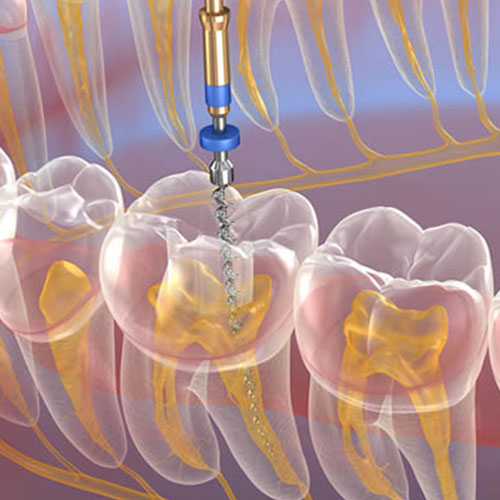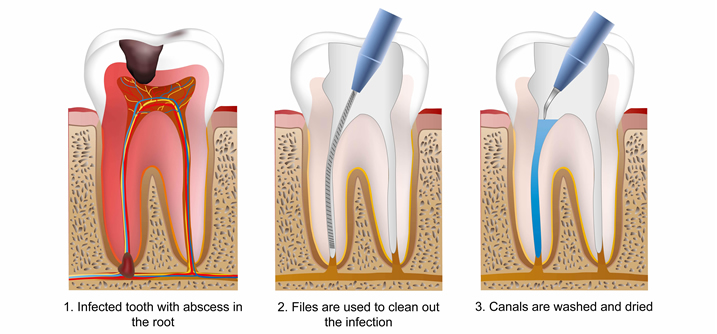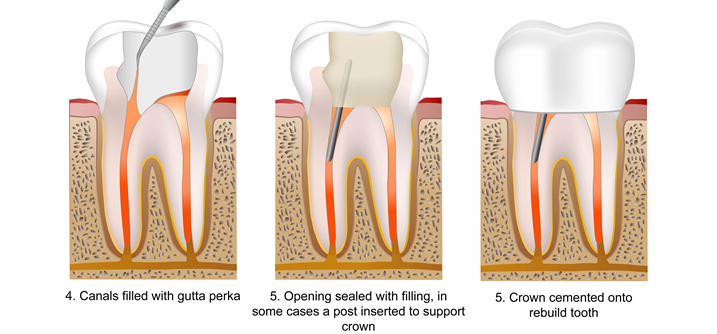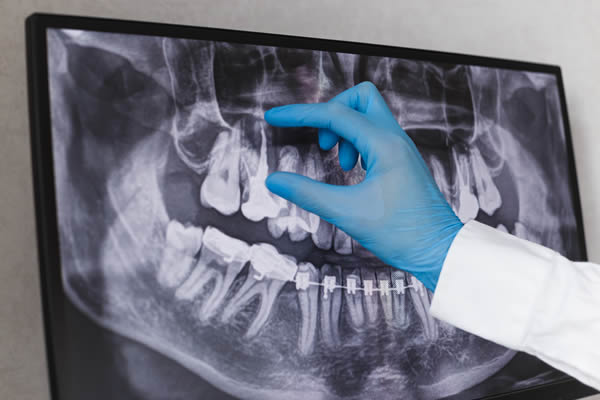Root Canal Treatment
Using a root canal procedure to save an infected tooth at Goodleigh Dental Practice in Chelmsford

Over the years, the root canal procedure has, somewhat unfairly, gained a reputation as one of the most ‘dreaded’ dental procedures. This is unfortunate as, done correctly, it should be no more uncomfortable than any other invasive procedure and is an excellent way to preserve an infected tooth.
What is Endodontics
The word ‘endodontics’ comes from two ancient Greek words meaning ‘inside’ and ‘tooth’, and it is the soft inner part of the tooth, also often called the pulp, that endodontics is concerned with.
Primarily, it involves the use of root canal surgery when the inner part of the tooth, where the nerves and blood vessels are stored, becomes infected.


The root canal procedure
When the soft pulp of a tooth becomes infected, it is likely to spread and can very painful indeed, sometimes resulting in an abscess. This will not heal on its own and needs professional treatment at our Chelmsford dental practice.
At Goodleigh Dental Practice, after examining the infected tooth, x-rays will be taken in order to determine whether an abscess is present, as well as to determine the shape of the root canals that need to be cleaned.
A local anaesthetic will then be given to ensure the patient’s comfort throughout the procedure and, once this has taken effect, the top of the tooth will then be removed to expose the infected pulp.
This infected inner pulp will then be removed from the tooth and any remaining bacteria will then be removed using an antibacterial cleaning wash. This then leaves the patient with a bacteria free, but hollow, tooth.
The next step is to fill the tooth and seal the top again. In many cases, this will involve the placing of a dental crown to complete the procedure. This works not only to give the restored tooth a natural appearance, but also to give it additional strength.
Aftercare
Following a root canal procedure at Goodleigh Dental Practice, the patient is left with a natural tooth, albeit one that has no feeling as the nerves have been removed.
Although the tooth now has no sensation, it is still important that the tooth is cleaned as normal, especially around the gums. Failure to do so may not only cause the enamel of the tooth to become decayed and weakened, but gum disease may also occur, potentially threatening the survival of the tooth itself.
It is also advisable to remember that although the tooth will be strong and suitable for everyday use, it may not be quite as strong as a healthy natural tooth and care should be taken to avoid biting on very hard objects, as this may cause the tooth to break.

